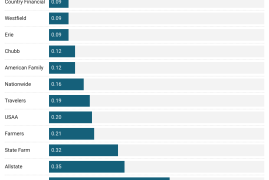Short term health insurance plans provide temporary medical coverage for individuals in need of immediate, short-term healthcare protection. These plans offer affordable solutions for unexpected medical expenses.
Short term health insurance plans are designed to bridge coverage gaps or serve as a temporary solution for situations such as periods of unemployment or when transitioning between jobs. Individuals who are not eligible for traditional health insurance may also benefit from short term plans.
These plans typically offer basic coverage for essential medical services and may be more budget-friendly compared to long-term health insurance options. While short term health insurance plans do not cover pre-existing conditions, they can provide crucial financial protection in times of need.
What Are Short Term Health Insurance Plans
Short term health insurance plans provide a temporary solution for individuals who need coverage for a limited period of time. These plans are designed to bridge gaps in healthcare coverage, offering flexibility in coverage, specific durations, and tailored eligibility requirements.
Flexibility Of Coverage
Short term health insurance plans offer a range of flexible coverage options, allowing individuals to customize their insurance based on their unique needs. These plans often provide the flexibility to choose coverage for doctor visits, hospitalization, emergency care, and prescription drugs based on individual preferences.
Duration Of Coverage
The duration of short term health insurance plans typically ranges from 30 days to 12 months, making them ideal for individuals in need of temporary coverage. This flexibility in duration allows individuals to select coverage that aligns with their specific transitional needs, such as waiting for employer-sponsored benefits to commence or during periods of unemployment.
Eligibility Requirements
Short term health insurance plans often have more lenient eligibility requirements compared to traditional health insurance plans. This can be beneficial for individuals who may not qualify for or afford long-term health insurance options, providing a valuable safety net during transitional periods.
Benefits Of Short Term Health Insurance Plans
Short term health insurance plans offer flexibility and cost-effective coverage for individuals seeking temporary medical protection amidst life transitions. These plans provide quick access to essential healthcare services and safeguard against unforeseen health expenses, making them a valuable option for short-term health insurance needs.
Benefits of Short Term Health Insurance Plans Short Term Health Insurance Plans offer key benefits to individuals seeking temporary health coverage.Affordability
Short Term Health Insurance Plans are cost-effective options for those needing immediate coverage.Quick Approval Process
These plans come with a speedy approval process, providing coverage in a timely manner.Customizable Coverage Options
Short Term Health Insurance Plans offer flexibility with customizable coverage tailored to individual needs. These plans are affordable, quick to approve, and can be personalized as per your requirements.Considerations Before Choosing Short Term Health Insurance
When exploring your options for health insurance, short term health insurance plans can offer a temporary solution for individuals who are in between jobs, waiting for employer benefits to kick in, or simply need coverage for a specific period of time. However, before making a decision, it’s important to consider a few key factors that can impact the suitability of these plans for your specific needs.
Coverage Limitations
One of the first considerations when evaluating short term health insurance plans is their coverage limitations. Unlike comprehensive health insurance plans, short term plans are designed to provide coverage for a limited duration. They typically offer benefits for a set period, usually up to 12 months, with the possibility of extending coverage in some cases. However, it’s important to understand that these plans often do not cover pre-existing conditions, maternity care, mental health services, or prescription drugs. While coverage may vary depending on the insurer and the plan you choose, it’s crucial to review the specifics to ensure it aligns with your health needs.
Pre-existing Conditions
Another crucial consideration is how short term health insurance plans handle pre-existing conditions. In most cases, these plans do not provide coverage for any pre-existing conditions you may have. This means that if you have a chronic illness or require ongoing medical care, you may need to seek alternative insurance options. It’s essential to carefully review the plan’s terms and conditions to ensure you understand the limitations and exclusions related to pre-existing conditions.
Long-term Health Needs
Short term health insurance plans may not be suitable if you have long-term health needs. While they can provide coverage for unexpected medical emergencies or accidents, they are not intended to replace comprehensive health insurance. If you anticipate needing ongoing medical care, regular check-ups, or prescription medications for an extended period, it’s advisable to explore other options such as individual health plans or employer-sponsored insurance that can offer more comprehensive coverage tailored to your specific needs.
Comparison With Long Term Health Insurance
Short-term health insurance plans provide temporary coverage for individuals in need of immediate benefits, offering flexibility and accessibility. These plans differ from long-term health insurance in their shorter duration and limited benefits, making them suitable for those in transition or with short-term health needs.
Coverage Duration
Long Term Health Insurance plans provide coverage for an extended period, typically for a year or more, while Short Term Health Insurance plans offer temporary coverage for a shorter duration. Long Term Health Insurance, as the name suggests, offers comprehensive coverage for an extended period, providing protection against various medical expenses for individuals and families. This type of coverage is ideal for those who anticipate their healthcare needs for a longer duration, such as individuals with chronic medical conditions or those planning for future medical procedures. On the other hand, Short Term Health Insurance can be a suitable option for individuals who are in a transitional period, such as recent college graduates, individuals between jobs, or those waiting for their employer-sponsored health insurance to begin. This temporary coverage offers flexibility and can bridge the gap until long-term coverage is obtained.Cost Differences
When it comes to costs, Short Term Health Insurance plans are generally more affordable compared to Long Term Health Insurance plans. The lower premiums associated with short-term coverage can be appealing for individuals on a tight budget or those seeking immediate coverage without breaking the bank. However, it is important to consider that while Short Term Health Insurance plans may have lower premiums, they often come with higher deductibles and fewer covered benefits. Additionally, pre-existing conditions are typically not covered under short-term plans. Therefore, it is essential to carefully assess your healthcare needs and budget before deciding on the most suitable option for you.Network Restrictions
While Long Term Health Insurance plans offer a wide range of network options, Short Term Health Insurance plans often come with more restrictions. Long-term coverage typically allows individuals to choose from a network of doctors, hospitals, and specialists, providing them with more flexibility and access to a comprehensive range of healthcare services. In contrast, Short Term Health Insurance plans may have limitations on the network of healthcare providers and specialists. These plans may require individuals to visit healthcare professionals within a specific network or may not cover out-of-network services at all. It is crucial to review the network restrictions of any short-term plan you consider to ensure it aligns with your healthcare needs and preferences. In conclusion, understanding the differences between Short Term Health Insurance and Long Term Health Insurance can help individuals make an informed decision based on their unique healthcare needs and budget. While the duration, cost, and network restrictions vary between these two types of coverage, it is essential to carefully evaluate the pros and cons of each option to ensure you have the right coverage that meets your specific needs.Frequently Asked Questions On What Are Short Term Health Insurance Plans
What Is The Meaning Of Short Term Health Insurance?
Short-term health insurance provides temporary coverage for specific periods, usually up to 12 months. It is designed to fill gaps in coverage, such as during job transitions or waiting for open enrollment. This option offers flexibility and cost savings, but may have limited benefits.
What Is The Downside To Short Term Health Insurance?
Short term health insurance has limited coverage and may not cover pre-existing conditions. It can also be more expensive in the long run.
Is Short Term Insurance A Good Idea?
Short-term insurance can be a good option for temporary coverage needs. It provides flexibility and customization. It’s essential for individuals needing coverage for a short period without long-term commitment. Consider your specific situation to determine if short-term insurance is a good fit.
Are Short Term Health Insurance Plans Legit?
Yes, short term health insurance plans are legitimate. They offer temporary coverage for individuals in specific situations, such as during a job transition or while waiting for other coverage. These plans provide basic medical benefits and can help protect against unforeseen medical expenses.
Conclusion
In a nutshell, short term health insurance plans provide valuable coverage for unexpected medical needs. Flexibility and affordability make them suitable for certain situations. Understanding the benefits and limitations can help individuals make informed decisions when choosing a health insurance option.
Stay informed to protect your health and financial well-being.
{ “@context”: “https://schema.org”, “@type”: “FAQPage”, “mainEntity”: [ { “@type”: “Question”, “name”: “What is the meaning of short term health insurance?”, “acceptedAnswer”: { “@type”: “Answer”, “text”: “Short-term health insurance provides temporary coverage for specific periods, usually up to 12 months. It is designed to fill gaps in coverage, such as during job transitions or waiting for open enrollment. This option offers flexibility and cost savings, but may have limited benefits.” } } , { “@type”: “Question”, “name”: “What is the downside to short term health insurance?”, “acceptedAnswer”: { “@type”: “Answer”, “text”: “Short term health insurance has limited coverage and may not cover pre-existing conditions. It can also be more expensive in the long run.” } } , { “@type”: “Question”, “name”: “Is short term insurance a good idea?”, “acceptedAnswer”: { “@type”: “Answer”, “text”: “Short-term insurance can be a good option for temporary coverage needs. It provides flexibility and customization. It’s essential for individuals needing coverage for a short period without long-term commitment. Consider your specific situation to determine if short-term insurance is a good fit.” } } , { “@type”: “Question”, “name”: “Are short term health insurance plans legit?”, “acceptedAnswer”: { “@type”: “Answer”, “text”: “Yes, short term health insurance plans are legitimate. They offer temporary coverage for individuals in specific situations, such as during a job transition or while waiting for other coverage. These plans provide basic medical benefits and can help protect against unforeseen medical expenses.” } } ] }

Leave a comment